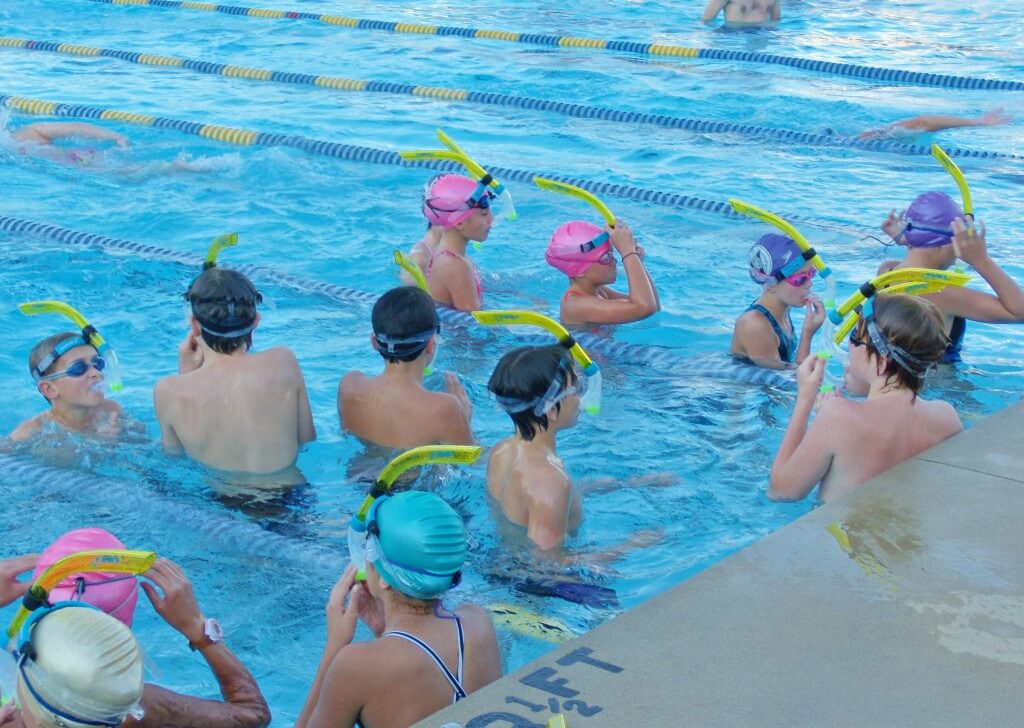A Call for Mandated Childhood Heart Check-Ups

By Sophia Chiang, Swimming World College Intern
As a swimmer who has struggled, and continues to struggle with a heart condition, hearing about athletes suffering from cardiac episodes, or worse, sudden cardiac death, holds a particular nightmarish horror for me. The worst part? Knowing that if we, as a nation, impose required heart check-ups for children under 18, many of these untimely deaths can be prevented.
I see myself in each of these athletes. I see myself often. Plug “athlete heart, sudden death” into any news search engine and dozens of articles detailing the lives and sudden deaths of young athletes will pop up, and this goes beyond the sport of swimming. Promising college football recruits, track stars, NCAA swimming champions. I see athletes, just like me, who had bright futures ahead of them both in the classroom and in their respective sports, who didn’t even think that it was possible they could die so soon. Their fates could have been mine.
When I was diagnosed with Long QT Syndrome (LQTS) at the age of 14, I had been swimming competitively for almost an entire decade without knowing I had a heart condition.
I’m no doctor, so bear with my amateurish explanation of what it is: the intervals between heartbeats are lengthened due to improper heart valve function. Sometimes, those valves malfunction, keeping blood and oxygen from entering into the heart to make sure it beats, creating irregular heartbeats. My doctors determined that I have about two to three irregular heartbeats per 24-hour cycle.
Being asymptomatic, there’s no indication as to when these irregular heartbeats occur, although the doctors do know for sure they will occur. The simplest explanation is this: the heart is kind of like a ticking clock. It can’t really miss a beat, and when it does, it gets thrown off course. Sometimes, when it gets thrown off course, the clock can completely stop. That’s how I could go into sudden cardiac arrest.
LQTS 1 is especially dangerous because there is a direct, proven link between aerobic exercise and elevated chances of experiencing an episode. Sports such as swimming and running track are some of the most dangerous due to the extended period where the heart is at an elevated level.
Now, I don’t know what heart issue these athletes suffered from. It very well may have been LQTS, but it also could have been one of the many, many other heart conditions that are out there. Some (such as the Nitro swimmer with LQTS) are lucky, and thanks to rapid response from those on the pool deck, are saved in time. But these cases are very well in the minority. We may not know what each athlete had, but what we do know is that they obviously didn’t know they had a problem until it was too late.
Nowadays, schools do a half dozen medical checks for eyes, ears, and conditions such as scoliosis, as well as mandate yearly pediatrician check-ups, but there is no mandate for cardiologist check-ups. Family doctors do use EKGs and echocardiograms for adults, but for children under 18, pediatricians are not required to do so, nor will the insurance pay for it unless there can be proven reason for a cardiologist appointment.
I had never seen an EKG in my entire life before my diagnosis. The only reason I was diagnosed– and possibly had my life saved by knowing about my condition– was that my father had passed away a few months before from an aorta dissection: another, separate heart condition, and the insurance had okayed a cardiologist check-up. But for people who do not have a known heart disease within their family circle, getting insurance to cover such a check-up is difficult at best. There is no history of anyone in my family suffering from LQTS. For all intents and purposes, I am the first, and yet, I still have the condition.
The traditional argument for why heart check-ups are unnecessary is that heart issues among children are “rare,” as the major killer of American adults today– the heart attack– is an issue that few experience until past 35.
However, the increasing number of young athlete deaths is showing that these traditionally thought of “rare” childhood heart conditions is not as “rare” as statistics suggest. At an increasing rate of six percent per year, shouldn’t we start imposing mandated heart check-ups on all young athletes? I cannot stress how important it is for all young athletes to have this knowledge. Whether they continue to pursue alternative options to battle their conditions, whether it be quitting the sport or trying medication, is up to them, but athletes who are pushing their bodies to such extremes must be completely aware of what consequences may arise due to their bodily conditions.
In a sport like swimming, where high level age group swimmers have been known to train hard for anywhere from four to eight hours a day, shouldn’t they be required to know the risks they are taking? If schools are going to check students’ eyes and ears, why aren’t they checking one of the most important organs of all: their hearts?
There is now medication out there that regulates heart conditions such as mine. I take one for LQTS, and it does a great job of regulating my heart so I can continue to do what I love. The sad thing is, if you don’t know you have the disease, how can you prevent it?



